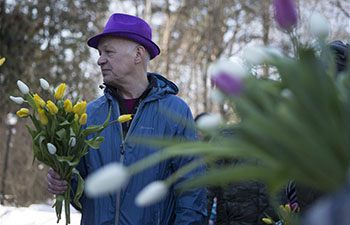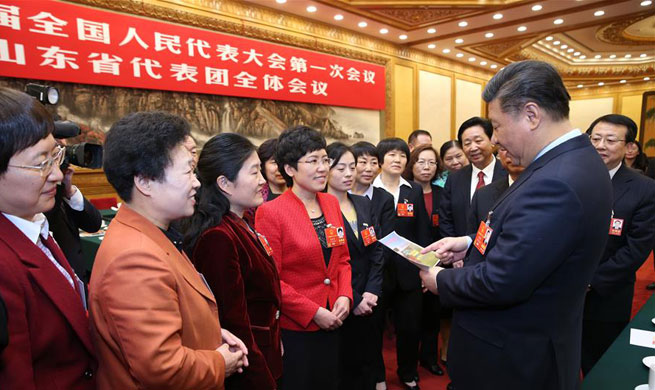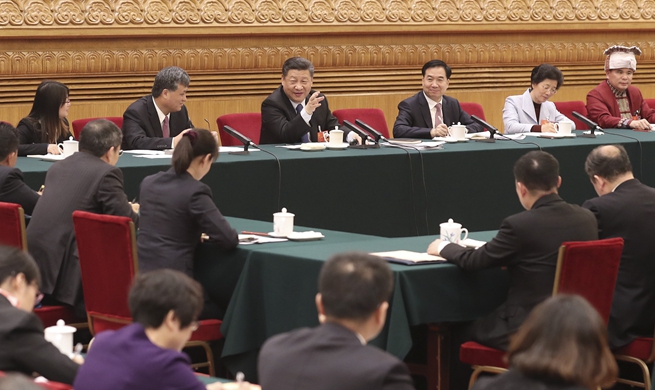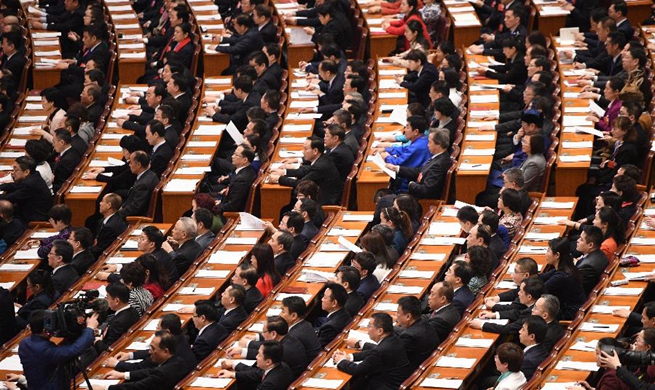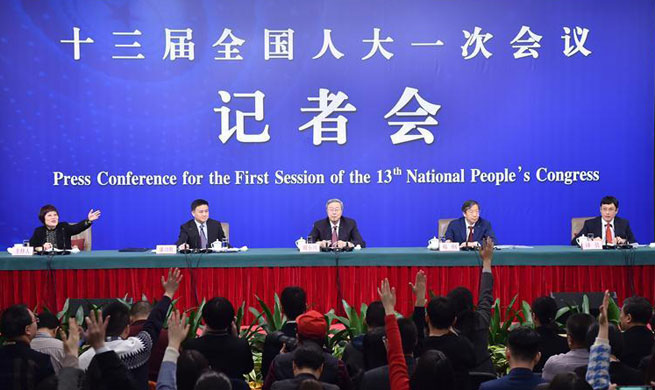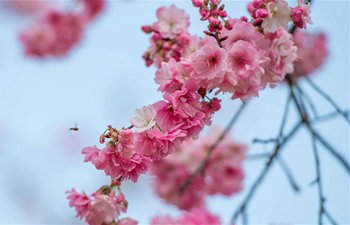XINING, March 9 (Xinhua) -- On a bustling street in the old town of Tongde County in northwest China's Qinghai Province, Tenzin touted a variety of Tibetan clothes to crowds of customers.
"Business is quite good," said Tenzin, 52.
Tenzin has left poverty behind thanks to his Tibetan clothes-making business and government help. More will follow him on the road out of poverty as China has set 2020 as the deadline to finish building a moderately prosperous society and eradicate poverty.
China will allocate 106.1 billion yuan (about 16.8 billion U.S. dollars) in funding for poverty alleviation work in 2018, some 20 billion yuan more than last year, said Liu Yongfu, director of the State Council Leading Group Office of Poverty Alleviation and Development.
In the past, Tenzin and his seven other family members struggled to make ends meet in Songduo Village, a place known for prolonged drought and sandstorms. Songduo Village is under the jurisdiction of Tongde County.
"We could only grow potato and highland barley," Tenzin recalled. "We lived in a mud shack, and the money from the crops could barely cover the cost of fertilizer."
In 2002, Tenzin and his wife left their children at home and became apprentices at a Tibetan clothes company in Chabcha Township, capital of Hainan Tibetan Autonomous Prefecture, which administers Tongde County.
"We did not make much money that year, but we definitely learned some good skills," he said.
The following year, the couple found a job making Tibetan clothes and began to make money.
"After 2002, we not only made some money, but also broadened our horizons," he said.
In 2008, Tenzin conducted a survey in his hometown and found that locals were unsatisfied with the Tibetan clothes, which were all from other localities. He decided to open a store to make clothes for locals, an idea his wife initially opposed.
"She was scared that we might lose all the money we made over the years, but I was determined to try it," he said.
At first, Tenzin went door to door to offer his services. After a while, with solid service and good quality, business soared, and Tenzin became a household name in Tongde County.
Tenzin was very generous with his tailoring skills. After his business success, many villagers came to Tenzin to learn how to make clothing. In less than two years, almost all families in Songduo Village had their own tailor studios.
"Even a disabled woman learned it, which helped her family make about 100,000 yuan a year," Tenzin said.
"In the past, we could only eat potatoes," said local villager Dorje. "Now mutton has replaced potatoes."
In Songduo Village, the average annual income has exceeded 80,000 yuan, and 90 percent of families have bought cars.
Government help has also played a big part in lifting locals out of poverty.
Tongde County is in a southern pastoral area of Qinghai, with an average altitude of 3,600 meters above sea level. There are more than 60,000 people living in the county, more than 90 percent of whom are Tibetans. Since 2012, the county has received more than 4 billion yuan in poverty allievation funds from higher authorities, which were spent on infrastructure, renovating houses for poor people and income-generating projects.
The county government spent more than 4 million yuan to build factories and purchasing equipment for villagers to make Tibetan clothes.
"With hard work and good government policies, I believe our lives will become much much better," Tenzin said.









